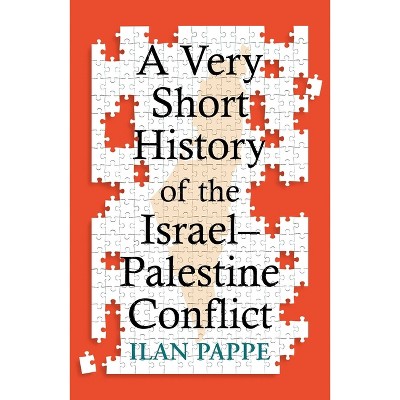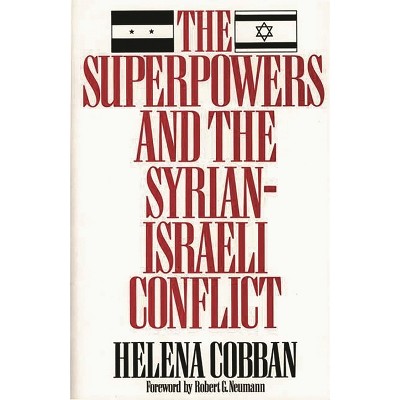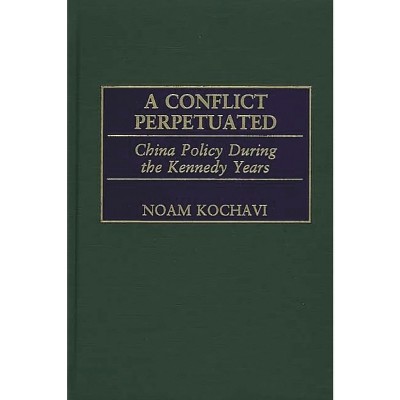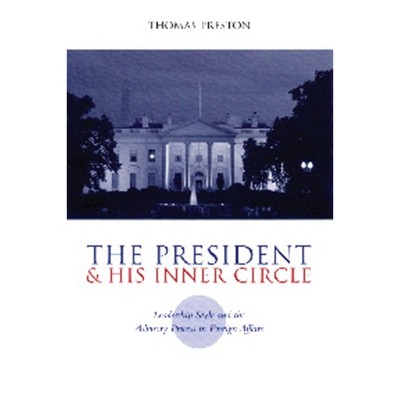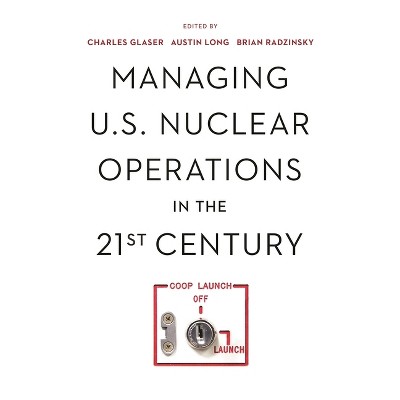Sponsored

Peace Operations and Intrastate Conflict - by Thomas R Mockaitis (Hardcover)
In Stock
Sponsored
About this item
Highlights
- Based upon consideration of United Nation missions to the Congo (1960-64), Somalia (1992-95), and the former Yugoslavia (1992-95) and examination of counterinsurgency campaigns, Mockaitis develops a new model for intervening in intrastate conflicts and commends the British approach to civil strife as the basis for a new approach to peace operations.
- About the Author: THOMAS R. MOCKAITIS is Professor of History and Chair of the History Department at DePaul University.
- 184 Pages
- Political Science, International Relations
Description
About the Book
Based upon consideration of United Nation missions to the Congo (1960-64), Somalia (1992-95), and the former Yugoslavia (1992-95) and examination of counterinsurgency campaigns, Mockaitis develops a new model for intervening in intrastate conflicts and commends the British approach to civil strife as the basis for a new approach to peace operations. Both contemporary and historic examples demonstrate that military intervention to end civil conflict differs radically from traditional peacekeeping. Ending a civil war requires the selective and limited use of force to stop the fighting, safeguard humanitarian aid work, and restore law and order. Since intrastate conflict resembles insurgency far more than it does any other type of war, counterinsurgency principles should form the basis of a new intervention model.
A comprehensive approach to resolve intrastate conflict requires that peace forces, NGOs, and local authorities cooperate in rebuilding a war-torn country. Only the British have enjoyed much success in counterinsurgency campaigns. Starting from the three broad principles of minimum force, civil-military cooperation, and flexibility, the British approach in responding to insurgency has combined the limited use of force with political and civil development. Carefully considered and correctly applied, these principles could produce a more effective model for peace operations to end intrastate conflict.
Book Synopsis
Based upon consideration of United Nation missions to the Congo (1960-64), Somalia (1992-95), and the former Yugoslavia (1992-95) and examination of counterinsurgency campaigns, Mockaitis develops a new model for intervening in intrastate conflicts and commends the British approach to civil strife as the basis for a new approach to peace operations. Both contemporary and historic examples demonstrate that military intervention to end civil conflict differs radically from traditional peacekeeping. Ending a civil war requires the selective and limited use of force to stop the fighting, safeguard humanitarian aid work, and restore law and order. Since intrastate conflict resembles insurgency far more than it does any other type of war, counterinsurgency principles should form the basis of a new intervention model.
A comprehensive approach to resolve intrastate conflict requires that peace forces, NGOs, and local authorities cooperate in rebuilding a war-torn country. Only the British have enjoyed much success in counterinsurgency campaigns. Starting from the three broad principles of minimum force, civil-military cooperation, and flexibility, the British approach in responding to insurgency has combined the limited use of force with political and civil development. Carefully considered and correctly applied, these principles could produce a more effective model for peace operations to end intrastate conflict.Review Quotes
"The counter-insurgency argument is a clever one that deserves consideration and represents the main contribution of the book....Readers would be wise to consult those works in conjunction with this book to get a full picture of the problems and prospects for peacekeeping in civil conflict."-The International History Review
?The counter-insurgency argument is a clever one that deserves consideration and represents the main contribution of the book....Readers would be wise to consult those works in conjunction with this book to get a full picture of the problems and prospects for peacekeeping in civil conflict.?-The International History Review
?[t]his book is a much-needed addition to the growing literature on how to mount and manage military operations in pursuit of stability in the complex world that is emerging from the bilateral world of the Cold War era.?-Small Wars and Insmgtncits
"Ýt¨his book is a much-needed addition to the growing literature on how to mount and manage military operations in pursuit of stability in the complex world that is emerging from the bilateral world of the Cold War era."-Small Wars and Insmgtncits
"[t]his book is a much-needed addition to the growing literature on how to mount and manage military operations in pursuit of stability in the complex world that is emerging from the bilateral world of the Cold War era."-Small Wars and Insmgtncits
About the Author
THOMAS R. MOCKAITIS is Professor of History and Chair of the History Department at DePaul University./e His research interests include counterinsurgency and unconventional conflict.Shipping details
Return details
Frequently bought together

Trending Non-Fiction






Discover more options
